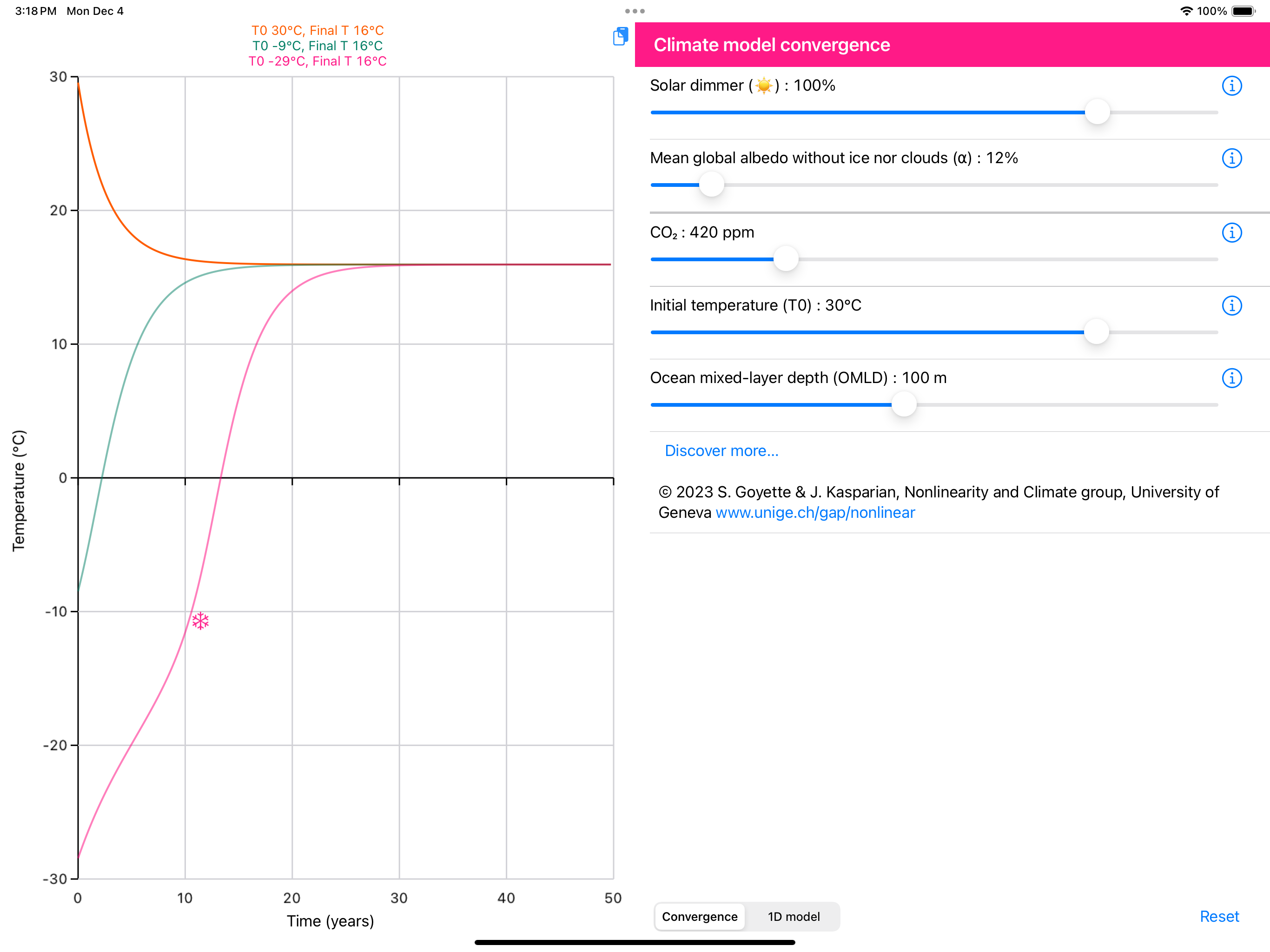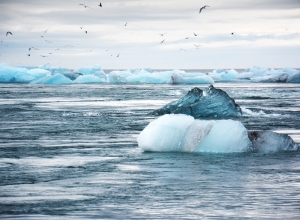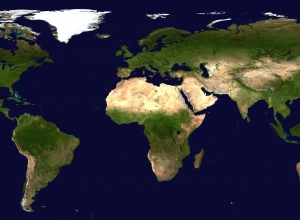Didactic climate models in a mobile application
Climate models help in understanding the climate, yet their differential equations can prove challenging to teach to non-experts. To aid students in comprehending the impact of each climate parameter and process on the climate and its evolution, the University of Geneva has recently created a mobile application. This app is tailored for students, as well for anyone interested in climate, climate modelling, and simulation results.
The "Didactic Climate Models" application provides various methods to understand the convergence towards a stable long-term climate, including non-linearity of climate and alternative steady states. The app is based on two simplified classical numerical models. The first focuses on the convergence of an energy balance model, which considers the average of the entire planet (Figure 1), while the second model offers a 1D representation of latitudinal trends (Figure 2).
Figure 1: 0D model for convergence study

Figure 2: latitudinal 1D model
Although highly simplified, these models encapsulate the Earth's energy balance reasonably, their formulations being rooted in physical first principles. The default parameters are configured to reflect present-day Earth, although users can adjust these as desired by manipulating sliders to explore the models’ sensitivities and compare outcomes, that are calculated interactively in real-time.
The application offers didactic assistance comprising parameter definitions, explanation of physical processes, and recommendations for numerical experiments. Additionally, users can export results for offline processing.
You can download the "Didactic Climate Models" application for free from the App Store for iPhone, iPad and Mac. It is also available on the Play Store for Android phones and tablets.
Please send any feedback to Stéphane Goyette and Jérôme Kasparian, of the Nonlinearity and Climate Group at the Institute for environmental sciences at the University of Geneva.
[Ce texte est aussi disponible en français.]
Stéphane Goyette
Stéphane Goyette, senior scientist at the University of Geneva, is active in the Institute for Environmental Sciences' Nonlinearity and Climate Group, as an atmospheric physicist and climatologist. He is actively involved in a wide range of teaching activities in the environmental sciences, from meteorology and climate to numerical modeling. He also supervises students in their Master's and PhD research projects involving the analysis of observational data and the results of numerical simulations.
Jérôme Kasparian
Jérôme Kasparian is an associate professor at the University of Geneva. He heads the Nonlinearity and Climate Group in the Department for Applied Physics and the Institute for Environmental Sciences. His research focuses on complex systems: non-linear optics, hydrodynamic waves and climate. He teaches in physics and environmental science masters as well as basic physics for medical students, and supervises masters and doctoral students on projects related to his own research topics.





